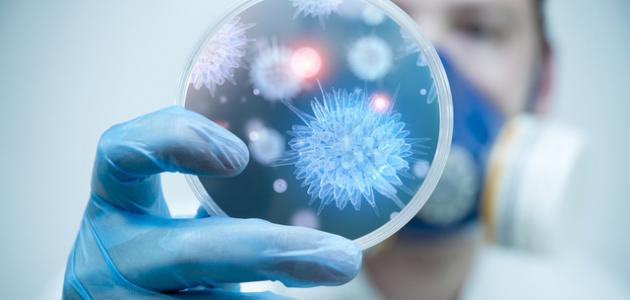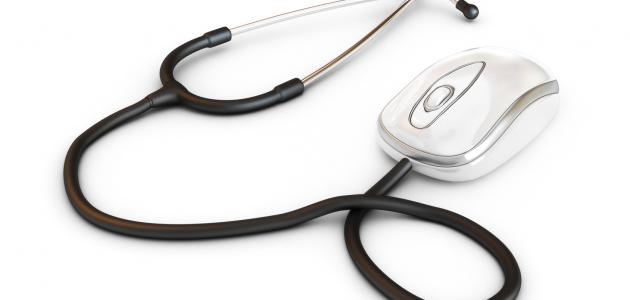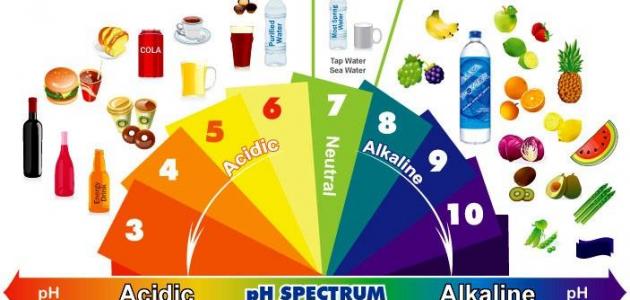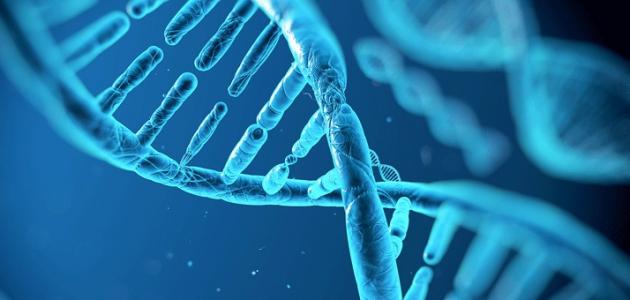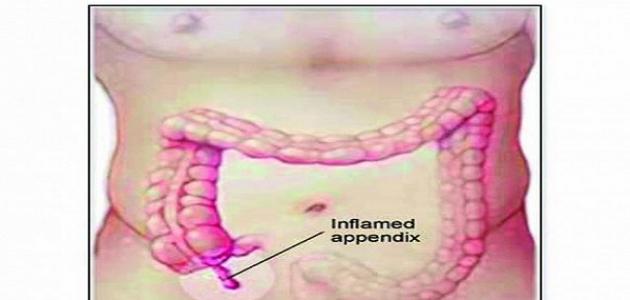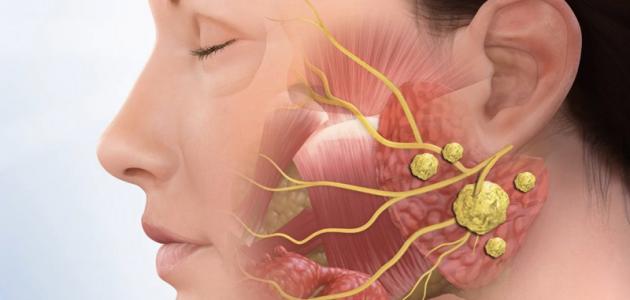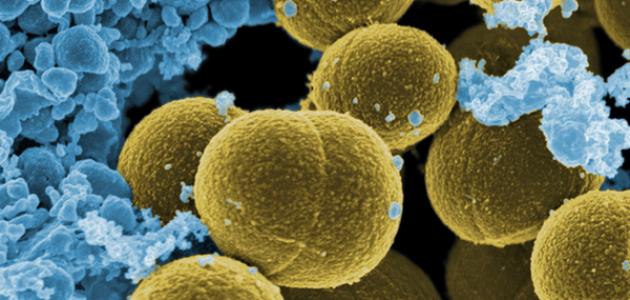Bacteria
Bacteria can be defined as microscopic, single-celled organisms that are distinguished by their small size. So that they are not seen with the naked eye, and this type of living organisms live in a variety of environments. Some of them may exist inside the human body, while others are outside it, and there is no doubt that there are different types of bacteria . Some of them may be beneficial to humans, while others are harmful to him, and the bacteria are characterized by being strong and complex. In order to enable them to survive and live in harsh conditions, and some may have special formulations that help them to continue and adapt to these conditions. [1]
Diseases caused by bacteria
There are many types of bacteria that may cause human diseases, and it should be noted that the severity of bacterial infection depends on many aspects; Including the type of bacteria that cause the infection, the person’s general health, the factors that would enhance or reduce the infection, and the following is an indication of the most prominent types of bacteria that may infect humans and the associated diseases: [2] [3]
- Salmonella: This type of bacteria leads to suffering from food poisoning , and this condition often results from the non-typhoid types of salmonella bacteria, which are found in the intestinal parts of humans and animals.
- Mycobacterium tuberculosis: These bacteria lead to suffering from tuberculosis , and they may seriously affect various organs of the human body. Especially the lungs.
- Methicillin -resistant Staphylococcus aureus (MRSA), methicillin-resistant Staphylococcus aureus (MRSA) represents a form of antibiotic- resistant bacteria that can be fatal, especially when people with weakened immune systems are infected with it.
- Clostridium difficile: , which represents a form of bacteria that are found in the intestines naturally, but when exposed to certain conditions contribute to excessive growth; As is the case when excessive intake of antibiotics, this may cause suffering from gastrointestinal diseases.
- Helicobacter pylori: This type of bacteria is associated with various stomach diseases. Including stomach ulcers and chronic gastritis.
- Neisseria gonorrhoeae: It leads to gonorrhea, which is transmitted from person to person through sexual contact.
- Staphylococcus aureus: This type of bacteria leads to various health conditions and diseases. These include boils , abscesses, cellulitis, wound infections, Toxic shock syndrome, as well as pneumonia and food poisoning.
- Streptococcus: , this type of bacteria may cause various types of diseases; These include pneumonia, meningitis , ear infections, and strep throat.
It should be noted that there are many other diseases that may be attributed to bacterial infection in many cases; Including bacterial vaginosis , and the symptoms of this inflammation are suffering from itching , and increased secretions, in addition to feeling pain when urinating, and it is worth noting the need to see a doctor in cases of suspected infection of any type of bacterial infection, or in If symptoms appear that may indicate this, such as an increase in temperature, fatigue or lack of response, given that this type of infection may cause serious complications. Such as toxic shock syndrome, kidney failure, or bacteremia . [2] [3]
Prevention of bacterial infection
In general, infectious agents, which include bacteria, may be transmitted through various means. Including contact through the skin or exposure to injuries, or inhalation of germs in the air, or eating contaminated food and drinks, exposure to insect bites, or through sexual contact, and it should be noted that there are many tips and guidelines that are advised to follow to reduce the possibility of transmission of infection from One person to another, we mention the following: [4]
- Washing hands frequently: especially before and after preparing food, before eating, and after using the bathroom, taking care to avoid touching different parts of the body with the hands. Especially the nose , eyes, and mouth, as this may cause germs to enter the human body.
- Obtaining appropriate vaccinations: This contributes to reducing the possibility of contracting many diseases, and it should be noted that you should consult a doctor before traveling; There are types of vaccinations that are recommended to be taken in this case in order to avoid infection from outside. This includes vaccines designed to prevent yellow fever, cholera , Typhoid fever, or hepatitis A or B.
- Staying home during illness: It is advised to stay at home, and not to go to work or school in cases of suffering from a bacterial infection, especially when certain symptoms appear. Such as vomiting, diarrhea or fever.
- Safe food preparation: It is advised to be careful to use clean cooking equipment when preparing food, to take care to preserve food and to cook it at appropriate temperatures, and with regard to cooked foods ; It is advised to avoid keeping it at room temperature for long periods of time. A person should store them in the refrigerator in an appropriate manner.
- Avoid illegal sexual relations: Apart from being contrary to Islamic law, they are considered a cause of sexually transmitted diseases .
- Avoid sharing personal tools with others: especially razors, comb, toothbrushes, in addition to utensils and cups that are used when consuming food and drinks.
References
- ↑ "bacteria" , www.healthline.com , Retrieved 23-11-2018. Edited.
- ^ A b "Types And Treatment Of Bacterial Infection" , Www.verywellhealth.com , Retrieved 23-11-2018. Edited.
- ^ A b "Bacterial Diseases : " , Www.healthgrades.com , Retrieved 23-11-2018. Edited.
- ↑ "Infectious diseases" , www.mayoclinic.org , Retrieved 23-11-2018. Edited.
